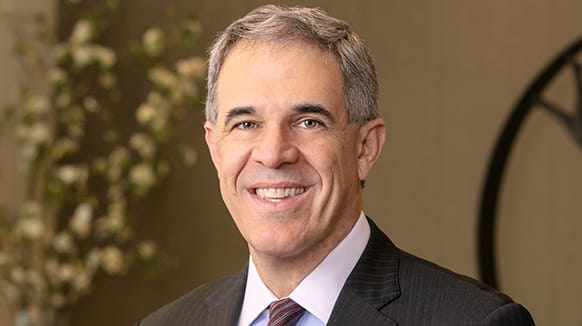Haynes Boone attorneys Larry Pascal and Carlos Alva were featured in Energy Advisor’s Inter-American Dialogue. Read an excerpt of their conversation below:
Question: Mexican President-elect Claudia Sheinbaum on Aug. 26 tapped Víctor Rodríguez, an academic from the National Autonomous University of Mexico, to be the next CEO of state oil company Pemex. With a debt of $100 billion, Pemex is the world’s most indebted energy company. What reasons were behind Sheinbaum’s selection of Rodríguez, and what will he bring to the role? What does his appointment say about Sheinbaum’s plans for the state oil company? How likely is Rodríguez to help develop renewables and alternative forms of energy?
Answer: Given the challenges that Pemex faces, the Sheinbaum administration was seeking somebody that it was familiar with, who shares the same energy policy outlook and who enjoys the confidence of the President-elect. Víctor Rodríguez fills these requirements, as he is a professor of energy engineering at the UNAM who has published papers on energy issues with President-elect Sheinbaum. The appointment suggests the president-elect was seeking a person of confidence to manage Mexico’s largest state-owned company. Rodríguez will seek to improve Pemex’s operations, maintain its current oil production at 1.8 million barrels per day and strengthen the national refining system. He presumably will seek to send a message abroad of stability so as to improve Pemex’s credit rating and financial condition. At the same time, it is unclear whether he will seek an important liberalization in the oil and gas sector, given prior statements emphasizing the importance of maintaining national energy sovereignty policy. However, he has stated that there will be private sector participation in the upstream sector, although it is unclear what his role will be. Pemex will continue to focus its activities on the oil and gas sector, but, under the new management, there is an expectation that there will be an opening for renewable energy projects, including offshore wind energy which could assist with the country’s energy transition. However, it has not been defined yet if the next government contemplates seeking extensive foreign investment in the renewable sector.

